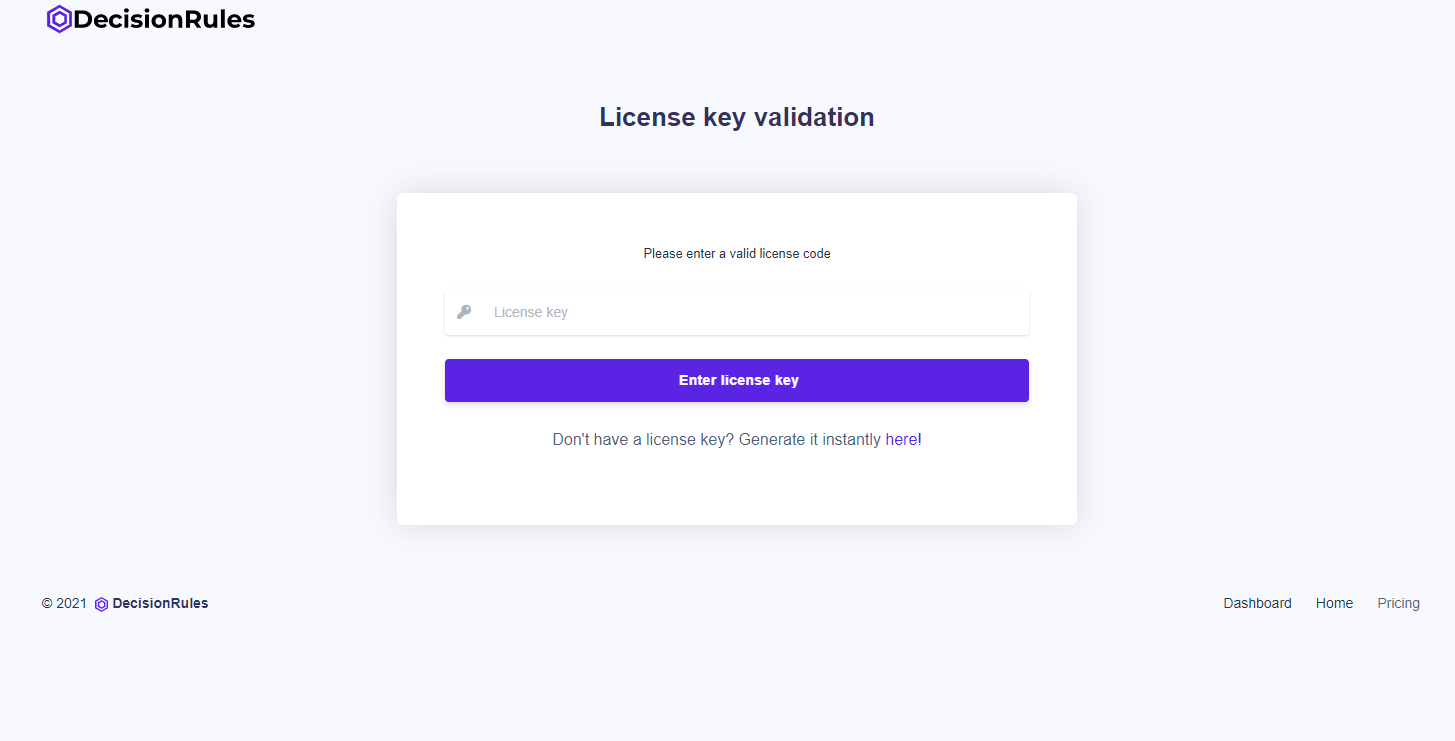Showcase + Business Intelligence
How to start the DecisionRules showcase app
curl -L https://decisionrules.io/showcase-with-business-intelligence/docker-compose.yml --output docker-compose.yamlGenerate DecisionRules License Key
Method 1: Validating license key on validation page
docker compose up

Method 2: Adding license key to compose file

Was this helpful?

